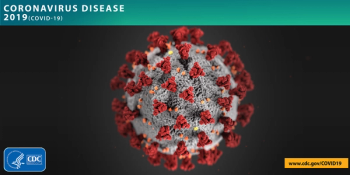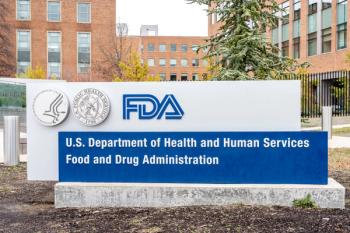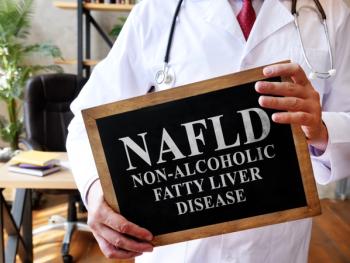
For health insurance executives, pursuing the Quadruple Aim is the name of the game.

Califf, who is described by some as a safe choice for the agency’s top job, headed the FDA during the last year of the Obama administration.

Site of service has a major effect on the cost. Home infusion and oral formulations are challenging both hospital- and physician-based infusions.

Patients with chronic lymphocytic leukemia, non-Hodgkin lymphoma, Hodgkin lymphoma, and multiple myeloma were more likely to have a COVID-19 breakthrough infection.

Smaller PBMs are rated higher by health plans in terms of satisfaction because of their ability to offer more customized solutions.

In an interview with Managed Healthcare Executive®, Ty Gluckman, M.D., FACC, FAHA, provides helpful explanations of hypertrophic cardiomyopathy diagnosis and treatment

Treating high levels of low-density lipoprotein cholesterol in young people may reduce lifetime exposure and lead to fewer cases of coronary heart disease.

A new report suggests infants who do not get enough sleep can quickly become overweight.

In an interview with Managed Healthcare Executive®, Ty Gluckman, M.D., FACC, FAHA, explains the definition, incidence and pathophysiology of hypertrophic cardiomyopathy.

Briana Contreras, associate editor of Managed Healthcare Executive, spoke with Josh Benner, founder and CEO of RxAnte, in this latest episode of Tuning In to the C-Suite podcast. In the conversation, Benner addressed the issue of medication misuse among patients based on access, demographics and more, as well as its solutions. The two also talked about the role technology has on the future of pharmacy and how solutions provided through RxAnte can assist plans to improve their CMS Start rating measures.

Diabetes and obesity rates are high among Latinos. To lower them, providers and payers need to understand cultural factors and barriers to healthcare.

Interviews with 32 patients shows a wide range of experiences but authors say one takeaway is a need for better coordination between HCM specialist and community cardiologists.

The Pfizer and Moderna COVID-19 vaccines introduced much of the world to ribonucleic acid (RNA), which has long played second fiddle to DNA. But in addition to the messenger RNA vaccines, treatments targeting and using RNA in a variety of ways are filling the pipeline and exciting researchers and drug developers.

Per episode saving of $297 during the first three years of the value-based care model were offset by $704 in payments for enhanced services to the 201 participating practices, study finds.

COVID-19 is not in the rearview mirror. Greater collaboration among organizations, and a new sense of purpose with regard to interoperability, is essential in this new era.

Paxlovid, an at-home treatment for COVID-19, reduces illness severity, hospitalizations, and deaths among adults by 89%.

The agency has been in the spotlight because of the pandemic, questions about its independence and the approval of Aduhelm. The stakes are high and the politics, fraught.


In COVID-19 news, Merck receives UK authorization for oral antiviral, its first approval, and the FDA rejects EUA for COVID-19 respiratory failure therapy. In cancer news, the FDA has approved a novel therapy for chronic myeloid leukemia and extended the review of Janssen’s CAR T therapy for multiple Myeloma. The agency also approved a therapy for age-related blurry vision.

The bad news: Health insurance is one of the lowest-rated industries when it comes to consumer satisfaction. And the good: New customer support platforms could give insurers a chance to boost member engagement and brand loyalty.

By giving Semglee, the interchangeable biosimilar for Lantus, a preferred spot on its formulary, the Prime Therapeutics says it is setting the stage for other interchangeables coming down the pike, including the one for Humira.

Biosimilars can save states billions of dollars annually, according to a new report from a libertarian think tank in California.

The antidepressant fluvoxamine reduced the need for hospitalization in high-risk patients, according to a new study.

Investor funding for digital healthcare ventures during the first three quarters of 2021 has already far outpaced last year’s levels, surpassing $20 billion for the first time

In this episode of Tuning In to the C-Suite podcast, Senior Editor of MHE, Peter Wehrwein, and Associate Editor, Briana Contreras, spoke with President and CEO of CareOregon, Eric Hunter, for another episode of the Meet the Board podcast series. Hunter, who has been on MHE’s Editorial Advisory Board for over a year now, shared how his career in healthcare kick-started, what managed care has become over time, how Medicaid is organized in Oregon and more.

Having CMS negotiate drug prices is a policy favored by President Joe Biden and many Democrats, and it is a prominent feature of H.R. 3, also known as the Elijah Cummings Lower Drug Costs Now Act.

Drugs that the FDA has approved on its fast-track accelerated approval basis are making up an increasingly larger share of Medicaid spending on pharmaceuticals.

Results of study published in JAMA Oncology suggest that it is the period after chemotherapy when cancer patients are most vulnerable to experiencing a serious case of COVID-19.

The medical cannabis market is expected to register a compound annual growth rate of 18.4% crossing the value of $33.2 Billion by 2027.

Findings from a longitudinal study of nonalcoholic fatty liver disease patients show that mortality increased with fibrosis.